Training programs at many schools have been updated in an applied and flexible direction, helping students feel more confident when entering the market.
Training is not just theory
For many years, English language students have been highly regarded for their language skills, especially their grammar and communication skills. However, many students still struggle when entering the job market.
LMH - a senior student majoring in English Language, Commerce, Ho Chi Minh City University of Foreign Languages and Information Technology said: "At first, I planned to pursue aviation, but after studying and working as a teaching assistant, I realized that I have the ability to impart knowledge and motivate students, which helped me decide to pursue a career as an English teacher."
H.'s story reflects a common reality, many students have to flexibly adjust their career direction during their studies. Even though they are equipped with specialized subjects in commerce, office work, translation and interpretation, if they lack self-awareness and practical experience, determining the right path is not easy.
H. shared that there was a time when he fell into a crisis and felt confused when he participated in an interview for a human resources intern position at a software company. “The employer asked me about my knowledge of artificial intelligence and software development, but my study program mainly focused on customer service and negotiation skills. After that day, I was quite pressured because I was afraid of unemployment. If I had a job in my major, I would have failed the application round because I lacked much experience in the profession,” H. said.
Many English Language students have difficulty in orienting their career after graduation. In fact, even though they possess good English skills, they still need more professional skills and practical experience to find a suitable career path.
According to Dr. Ho Van Han - Head of the Foreign Language Department, Nguyen Tat Thanh University, this stems from both objective and subjective factors. Objectively, the training program provides diverse knowledge and skills in many different fields, making students confused when choosing the most suitable path for themselves.
Subjectively, students may not have clearly defined their personal goals, and have not discovered their true passions, interests and strengths. In addition, the flexibility in the output standards of the training program contributes to creating a gap in clear career orientation for students after graduation.
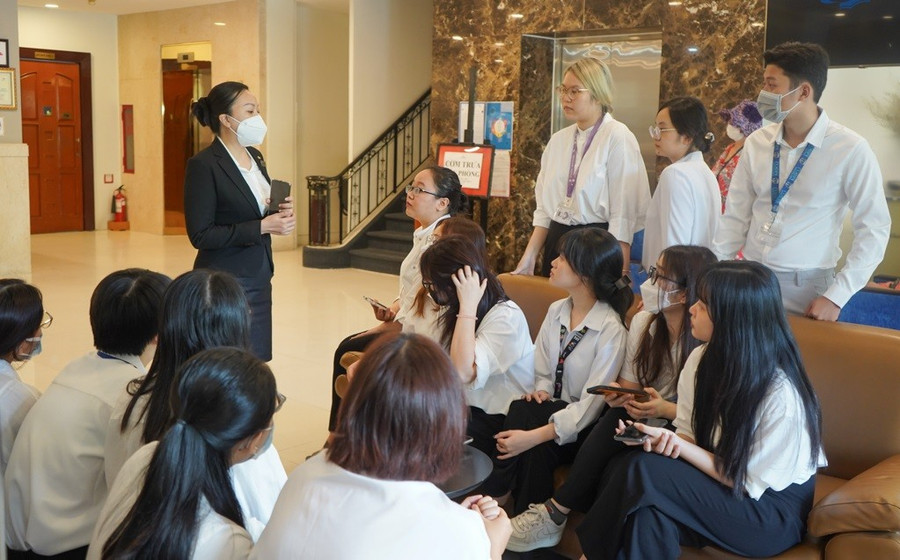
Professional standards in the classroom
Faced with the need for innovation in higher education , many schools have proactively adjusted their training programs in a practical direction, increased vocational skills courses, connected with businesses, expanded career experiences, and helped students apply their knowledge to work immediately after graduation.
At the University of Social Sciences and Humanities (Ho Chi Minh City National University), Dr. Nguyen Dang Nguyen - Head of the English Language Department, assessed that the professional capacity of English language students today, especially in Ho Chi Minh City, is much different from the previous generation.
Since high school, students have learned a lot of knowledge beyond textbooks; teaching materials are true to reality; teachers are trained more about English and English teaching methods; especially students are directly exposed to native English through movies, music, foreigners,...
“The faculty’s current training program is built in a combination of academic and application orientation. The proportion of practical courses and professional skills is being increased to over 70%. The faculty also regularly improves the quality of training with many solutions in the new situation, especially balancing applications in the digital age,” said Dr. Nguyen.
This expert added that during the learning process, students can choose a major and develop a clear career mindset such as the Linguistics - Language Teaching major and the Translation - Interpretation major, which are closely linked to the profession during the learning process with practical activities and professional internships.
The major in English - American Culture and Literature is improved with a lot of knowledge and activities serving practical work such as content writing; communication and marketing, review writing; film analysis and criticism; localization in communication, tourism, human resources,... all in English.
“Students need to be aware that knowledge of English Linguistics is their strongest advantage. It helps them access knowledge quickly, accurately and completely. Students need to boldly travel far and wide to update their knowledge of other countries in different cultures. When they have a lot of world knowledge, along with English language ability, they will be successful in many career fields,” Dr. Nguyen advised.
At Nguyen Tat Thanh University, Dr. Ho Van Han said that English Language students are oriented to their careers from the first year into 5 groups: Teaching English at: Secondary level; preschool level; working in English in the fields of commerce and services; in the media and diplomacy industry; translation and interpretation.
In particular, students have the opportunity to participate in a study and experience program in Australia lasting from 5 to 10 weeks. The program not only helps students improve their language skills and intercultural communication skills, but also contributes to expanding their global mindset and shaping their career path more clearly in the context of international integration.
In addition to the learning process in the classroom, students visit and practice at businesses, learn about the organizational culture, as well as specific job positions associated with actual professional roles and responsibilities. In general, to study English Language effectively, Dr. Han emphasized that students need to go through a development process with a clear roadmap. The first stage is to practice English language skills, followed by acquiring knowledge of English language and related culture.
On that foundation, students will use English as a professional tool to approach and master fields such as commerce, services, teaching, translation and interpretation, diplomacy and communication. Finally, through internships and real-life career experiences, students have the opportunity to affirm their abilities and position themselves on their career path.
“The English Language Department does not train students in a specific profession, but equips them with a language foundation and multi-disciplinary knowledge. Therefore, students need to proactively explore their interests, strengths and personal career orientation, clearly position themselves and understand what they want in the short and long term. From there, they can flexibly choose the appropriate path and focus on intensive training to achieve their desired career goals,” said Mr. Han.
Source: https://giaoducthoidai.vn/nganh-ngon-ngu-anh-chuyen-minh-don-dau-xu-the-nghe-nghiep-post741764.html





![[Photo] Da Nang: Hundreds of people join hands to clean up a vital tourist route after storm No. 13](https://vphoto.vietnam.vn/thumb/1200x675/vietnam/resource/IMAGE/2025/11/07/1762491638903_image-3-1353-jpg.webp)




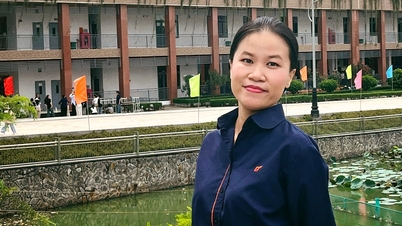

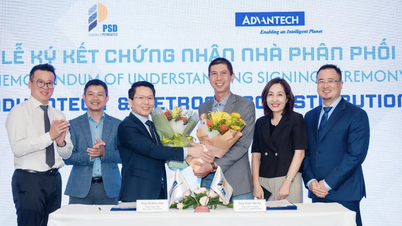




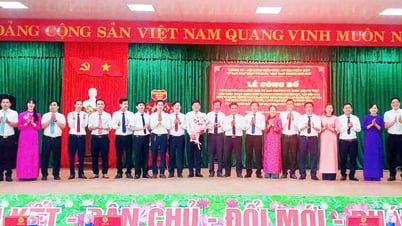


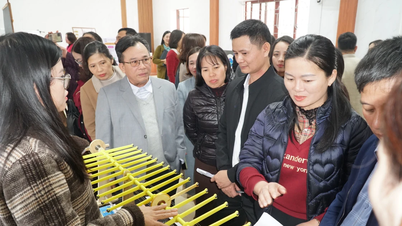










































































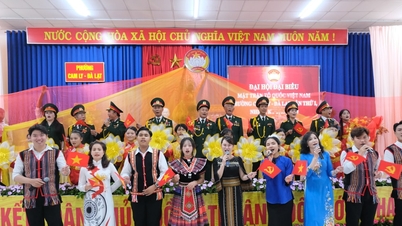




















Comment (0)